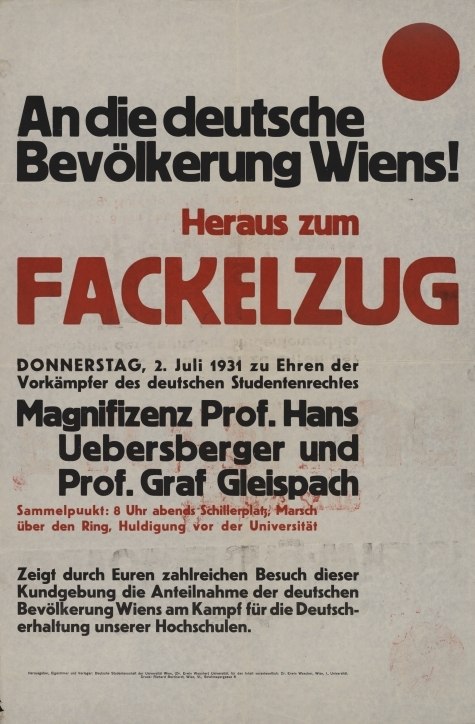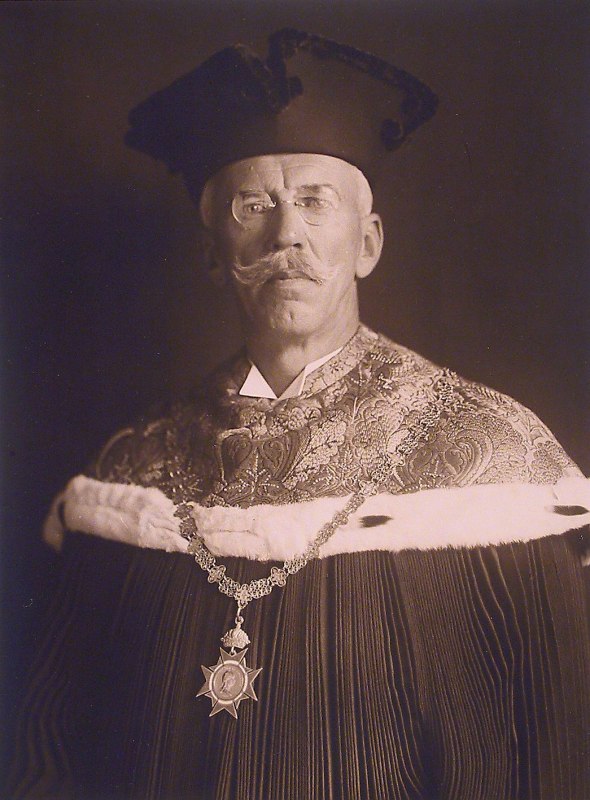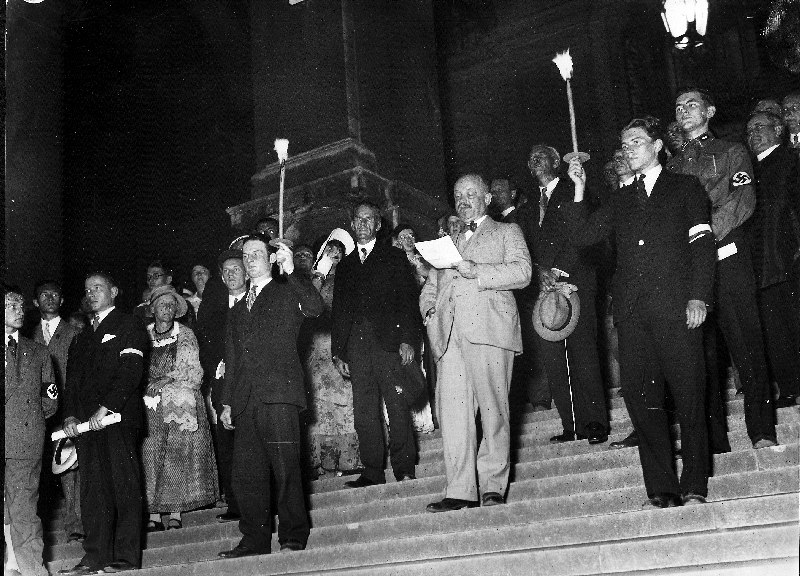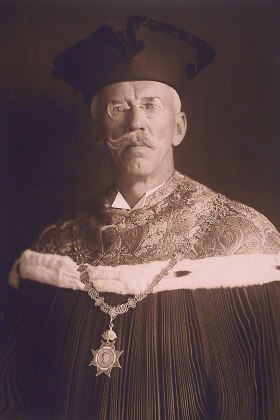The Gleispach’sche Studentenordnung (Gleispach Student Regulation)
In Rector Wenzel Gleispach’s student regulation, which de facto was meant to lead to an exclusion of all Jewish students, the long-held anti-Semitic tendencies among the teachers and students manifested themselves. The Gleispach’sche Studentenordnung (Gleispach Student Regulation) was already declared invalid in the following year, but it was the cause of several violent attacks by German-nationalist and National Socialist students.
Anti-Semitism at the University of Vienna in the inter-war period
Since the late 19th century, significant German-nationalist, anti-Semitic and anti-liberal traditions had existed at the University of Vienna, which found their expression in early demands for a numerus clausus for Jews. After the First World War, the anti-Semitic tendencies got increasingly worse and shortly after the proclamation of the “Republic of German-Austria” in November 1918, severe acts of violence informed by National Socialism began that were mainly aimed at Jewish students at the universities. The first rectors of the University of Vienna in the First Republic deemed the “German character” of the university to be endangered by “foreign domination” and demanded a preference of students with German nationalities and the establishment of a student association that was restricted to “German-Austrians of German nationality”.
The 1919 “German-Aryan” university committee elected by German-nationalist and Catholic student associations formed the basis of the later “German student body”, which was recognized by the university authorities. In 1923, a numerus clausus for Jewish and foreign students at Austrian universities was implemented on a probationary basis, but never officially approved. The “Nationalsozialistischer Deutscher Studentenbund” (National Socialist German Students’ League, NSDStB) founded in 1926 in Vienna quickly became the strongest fraction in the German student body.
The student regulation by Rector Wenzel Gleispach 1930
The German-national students’ anti-Semitic demands also enjoyed popularity and support among teachers and among the University of Vienna’s leadership. Particularly criminal law professor Wenzel Gleispach, a professed National Socialist with good relations to the Heimwehr-movement and rector of the University of Vienna in 1929/30, came to the forefront. From the beginning of his tenure in the fall of 1929, violent attacks by National Socialist and Heimwehr-students against social democratic students began – including attacks at lectures by the social democratic professor of anatomy, Julius Tandler, – which Gleispach sympathized with and tolerated as rector.
In 1930 the situation worsened, when Gleispach presented a suggestion for a new student regulation to the academic senate, which would group all students into “student nations” according to “heritage and mother tongue”, regardless of an individual’s actual nationality. With the planned compulsory membership in these racially defined “student nations”, the student regulation by far exceeded the university’s legislative power.
Despite massive criticism from the liberal and socialist camps, the senate approved Gleispach’s new student regulation on March 20, 1930. Thus, foreign and Jewish students were de facto eliminated from the “German student body” and its administration. Particularly in Vienna this affected a large number of students – more than a third of all students of the University of Vienna.
In the run-up to the student elections in February 1931, which already were based on this new regulation, socialist, liberal and Jewish student groups called for a boycott of the election. Meanwhile, National Socialist students tried to bring people to the vote through violence and intimidation..
Repeal of the regulation in 1931 and its consequences
The “Gleispach’sche Studentenordnung” approved by the senate was repealed on June 23, 1931, by the Constitutional Court, due to the fact that only the parliament was empowered to decide mandatory organization memberships. At the same time it was decreed that the grouping by nationality or other racist criteria did not contradict the principle of equality, meaning the “Volksbürgerprinzip” (“ethnic principle of citizenship”) was considered lawful.
Immediately following the Constitutional Court’s repeal of the student regulation, which de facto would have meant a numerus clausus for Jewish students, violent attacks by National Socialist students against Jewish, liberal and socialist students again began at the University of Vienna.
Articles
- Anti-Semitism at the University of Vienna
- “Furor teutonicus and racial hate”
- Student corporations in the 19th and 20th century
- The “Bärenhöhle” – a secret anti-Semitic group of professors in the inter-war period
- The Gleispach’sche Studentenordnung (Gleispach Student Regulation)
- Terror against the Anatomical Institute of Julius Tandler
- Expulsion of teachers and students in 1938
- The de-Nazification of the professorate at the University of Vienna
Last edited: 04/23/25




